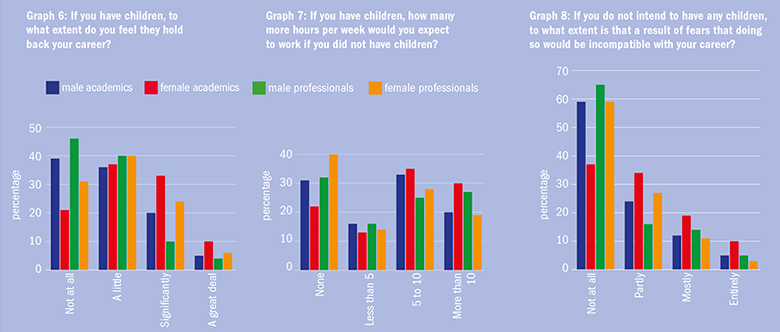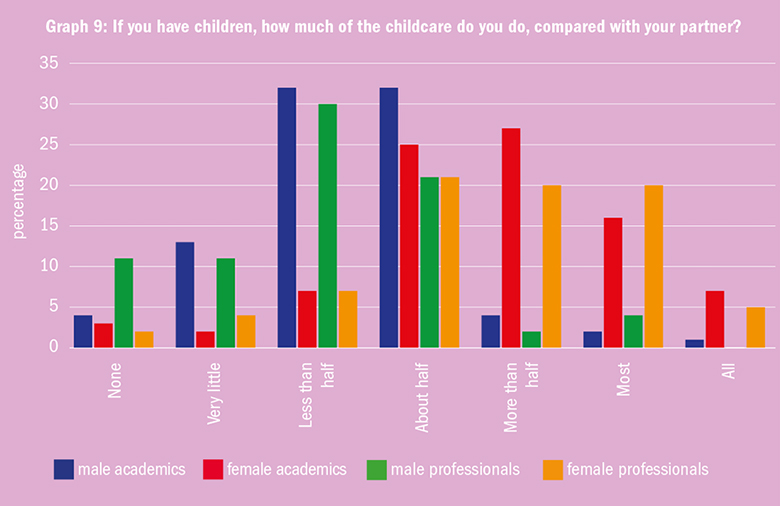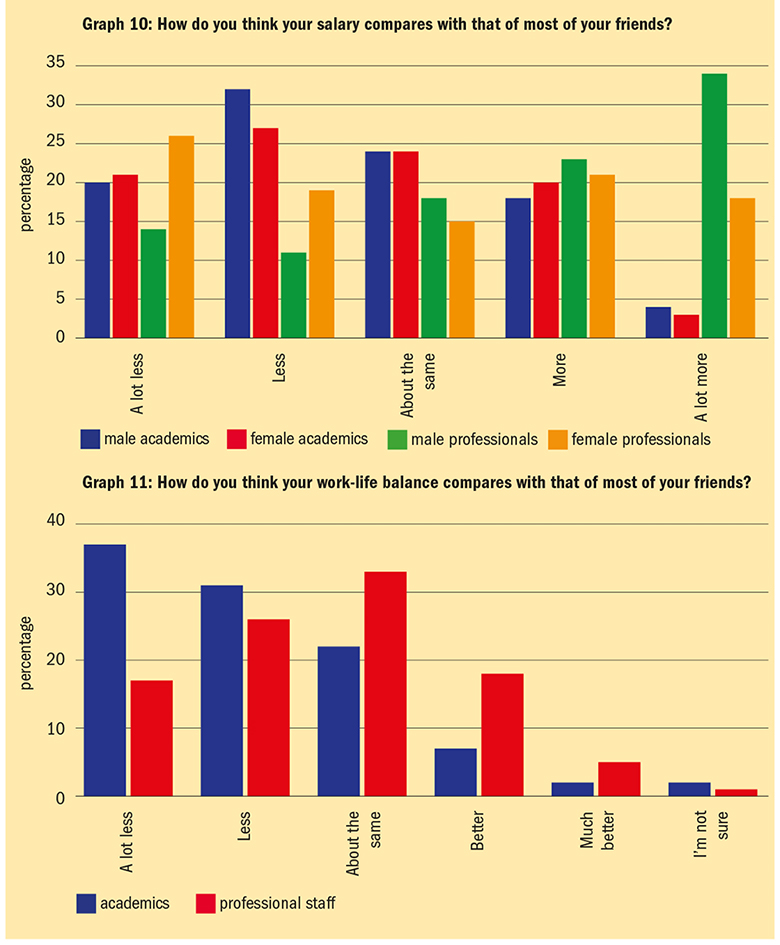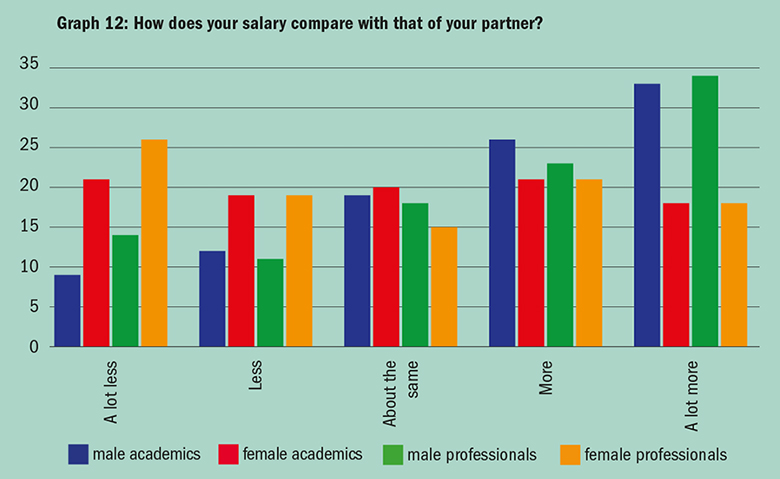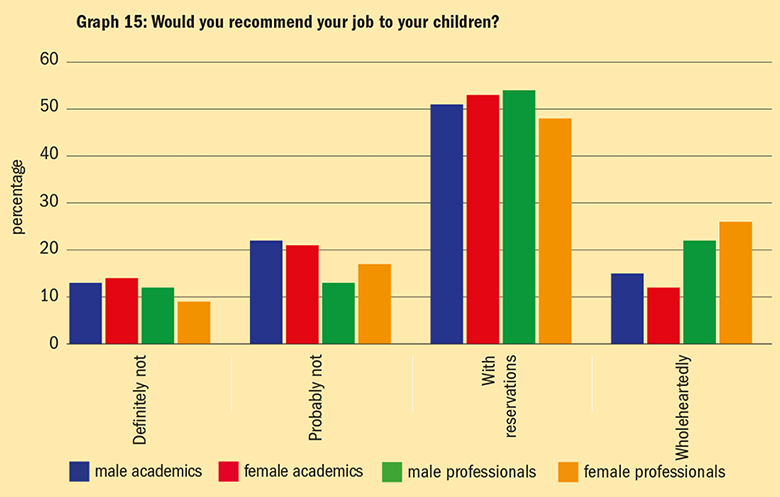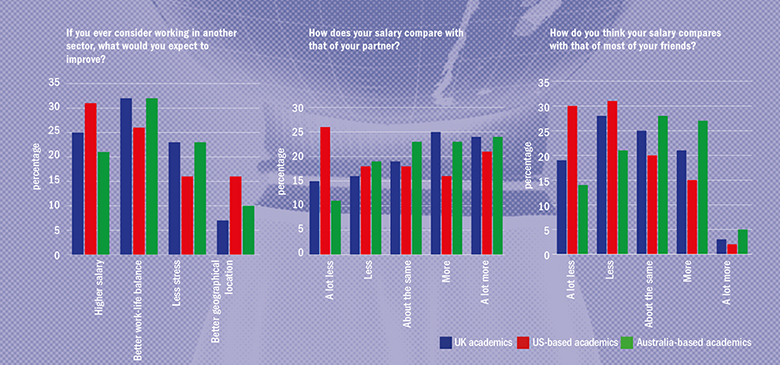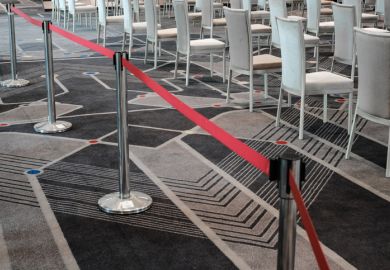The majority of university staff feel that they are overworked and underpaid, and that their careers have a detrimental impact on their relationships with their friends, families and partners.
These are some of the conclusions that can be drawn from Times Higher Education’s first major global survey of university staff’s views on their work-life balance.
But the findings also show that in many areas there is a deep gulf between attitudes among academics and professional and support staff, and between the experiences of men and women.
Between October and November 2017, some 2,379 higher education staff – of whom 85 per cent are academics and 67 per cent are female – gave us their views on their workload and their ability to balance their careers with their personal lives.
Almost two-thirds of respondents (61 per cent) are from the UK, while 17 per cent are based in the US and 5 per cent in Australia. Overall, staff from 56 countries across six continents are represented.
A supplementary survey, with additional questions on mental health and caring responsibilities, was answered by 402 staff, 76 per cent of whom were academics.
Although in both cases the respondents were self-selecting, the results make fascinating reading for anyone interested in the well-being of university staff. Among the main findings of the poll are:
- The majority of staff would recommend their job to their children, despite the fact that most academics and a significant proportion of other staff report working well beyond their contracted hours, including during weekends and holidays
- Most university staff with children – especially women – believe that their family life holds back their career to some degree, while many of those who do not intend to have children have made that decision because of their career
- Many staff believe that they are paid less and have a worse work-life balance than most of their friends
- A large majority of staff have considered leaving the higher education sector
- Many staff say that their job restricts their ability to see their friends and gets in the way of their ability to conduct a successful relationship
- There is a gulf between the views of academics and professional staff in many areas when it comes to work-life balance, with the latter much more content than the former.
 Source: Getty/Alamy
Source: Getty/Alamy

Workload and mental health
The workloads of people who work at universities appear to be on the rise. About two-fifths of all university staff say that they have been working longer hours during the working week over the past three years.
The highest proportion of academic respondents work nine hours per weekday; this falls to eight hours for professional and support staff. Academics are twice as likely as professional staff to work 10 or more hours per weekday; 40 per cent of scholars say that they do so, compared with 20 per cent of non-academics (see graph 1, below).
Indeed, one female manager of a university in Europe says that her work-life balance has improved since she left a previous academic post. “You actually can close the office doors and go into the weekend without having the feeling of missing out on publication, collaboration or funding opportunities,” she says.
Meanwhile, 31 per cent of scholars and 27 per cent of administrators typically work on both days over the weekend. Nearly half of academics typically work one day at the weekend (49 per cent), compared with just over a third of professionals (37 per cent). Two-fifths of scholars (40 per cent) tend to work six or more hours over the weekend; just 15 per cent of professional staff do so (see graph 2, below).
Hours spent working
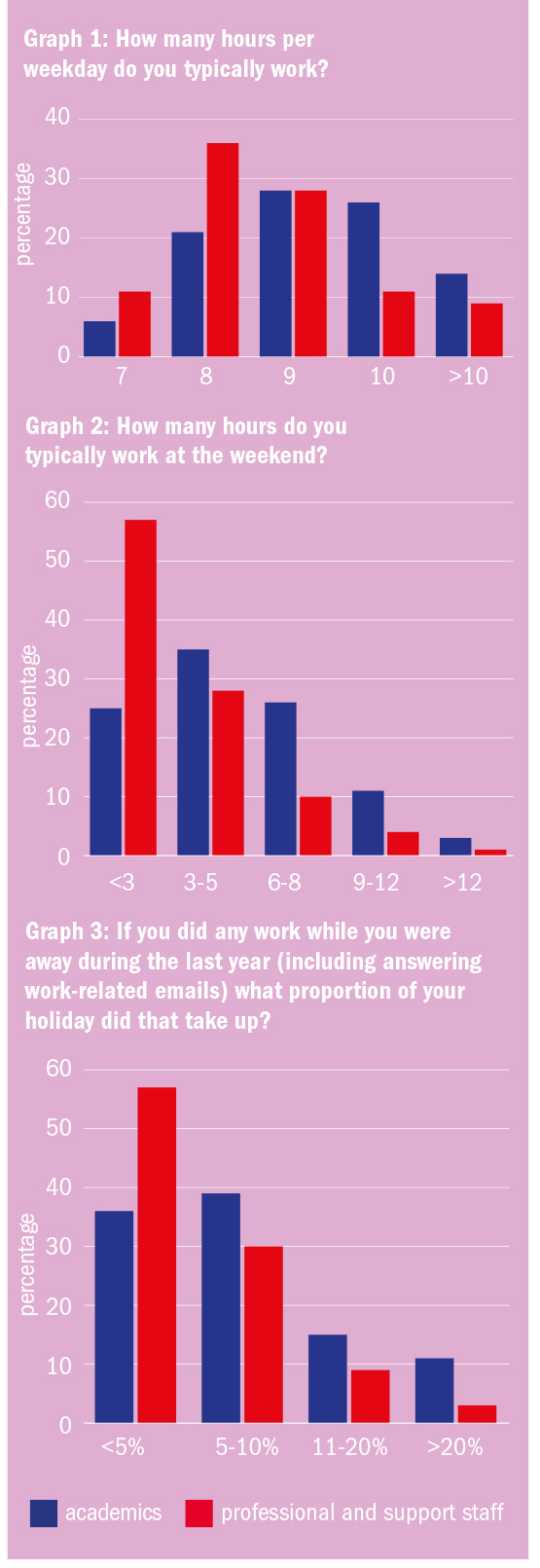
“During the week I am constantly required to attend meetings and deal with issues that are only peripherally related to my roles. This means that anything that requires thought and my research must take place during evenings and weekends,” says one professor at a UK university.
When she relayed her concern that her workload is “unsustainable”, the former dean of her faculty “brushed [it] off with comments such as: ‘There is no one else who is sufficiently senior to perform all these roles’, and implied threats about my subject area being closed down if we do not meet the set KPIs”.
Several other academics also reference senior administrators who either contributed to or failed to address their heavy workloads.
“Much of the increased burden relates to new ideas from proliferating administrators, theme deans and senior managers aimed at policing staff, ticking so-called metric boxes and developing visions. Real problems (chaotic timetables, inadequate estate, inadequate resources and support) are ignored and/or denied, often in pseudo-hippy newspeak,” says a professor at a Russell Group institution in the north of England.
Another professor at a research-intensive university in the south of England cites “endless bureaucracy developed by lumbering, overstaffed, overthought, overpaid senior administrators” as the main issue. “Most are not competent to project manage, so we often have to do their jobs as well as our own research and teaching. This adds several hours a week of work we aren’t particularly good at or motivated by,” he reports.
Others say that workload allocation models, which are designed to promote a healthy working environment, do little to help.
“There is a tendency to point to workload allocations and to say ‘you have time allocated for this, what is the problem?’ despite workload allocation matrices being underpinned by enormous underestimations of the time taken for basic tasks,” a professor at a Welsh research university says.
“I feel very stressed. Work is never-ending, never good enough, lucrative enough [or] impactful enough, so there is always a lot of pressure to do more,” adds another professor at a research university in the north of England.
The workload of a senior lecturer at an English post-92 university “is only kept below 60 hours per week by neglecting certain duties. Primarily, research suffers first. To adequately fulfil all of my teaching and administrative responsibilities would easily see me working 70 to 80 hours per week.”
But not all academics say that workload is an issue.
“I am very happy with my work-life balance and with leave entitlement and expectations for working hours in my institute. I’m unsure why so many academics feel they have to punish themselves and the quality of their work by working incredibly long hours while publicising and complaining about this – academia doesn’t have to be an arms race, and it is entirely possible to have a healthy work-life balance,” says a postdoctoral researcher at a Scottish research intensive.
Academics also tend to go on fewer holidays away from home than professional staff do. The largest proportion of academic respondents (33 per cent) had one such holiday in the past year, while professionals are most likely to have had two breaks (also 33 per cent). Two or more holidays were enjoyed in the past year by 56 per cent of academics and 62 per cent of professional and support staff.
However, one engineering and technology professor at a UK university says that he has not had a holiday “since 1994”, while a senior lecturer at a post-92 university in the north west of England finds it “almost impossible” to get away: “We are not allowed to book holidays during term time, but we are also not allowed to book holidays over exam periods, marking periods, internal exam board meetings or course development meetings. This means that although we get 35 days [of holiday] a year, we actually only have opportunity to use about 14.”
“I haven’t taken a holiday of a full week in more than three years,” adds a social sciences professor in the US, while a lecturer at a Russell Group university in the south west of England says that she has “had to mark coursework every Christmas holiday for five years”.
A senior lecturer at a post-92 institution says that he has “been told explicitly that by taking holidays I am making others do more work”.
Scholars are 17 percentage points more likely to report that they worked while on holiday (86 per cent) than their non-academic colleagues are (69 per cent). Of those who did work while on holiday (defined as including answering work-related emails), 65 per cent of academics say that doing so took up 5 per cent or more of their holiday, compared with 42 per cent of professional and support staff (see graph 3, above).
“I was supposed to take a second holiday, but cancelled it at the last minute. I saw no point in paying to sit in a hotel working, so I just stayed at home and worked instead,” says a lecturer at a Midlands research-intensive.
For others, the issue is not so much time as money. “Due to the hours I am allotted and the money that I make in those hours, I cannot afford to take holidays,” says a research assistant on a temporary contract in the US. “When I do have time off, it is spent at home, and I still have to dedicate time to my job.”
Several academics also report booking holiday in order to have time to complete research, while others say that their managers expect them to work during their time off.
“My boss flat-out refuses to approve holiday leave requests unless I confirm in writing that I will remain in full email contact the entire time,” reports a postdoctoral researcher at an Australian university.
“I’m expected to work on my days away from the office, regardless of whether they’re the weekend or vacation. Failing to respond to emails within 24 hours is considered a sign that you’re not committed to your job,” says an administrator at a Canadian university.
“Workload is the main issue we have to contend with these days. It is affecting mental and physical health and it seems to keep getting worse every year,” adds one professor at a Russell Group university in the north of England.
A sense of an unmanageable workload is often blamed for raising stress and anxiety levels. Our smaller, supplementary survey suggests that this is particularly the case among academics. Male academics are the most likely to say that work negatively affects their mental health “a lot”: 31 per cent give this answer, compared with 26 per cent of female academics and just 17 per cent of professional staff (see graph 4, below; as professional staff answered the supplementary survey in relatively small numbers, we have not subdivided their responses by gender).
Professional staff are also the most likely group of respondents to be able to switch off from work “often” or “always” when they are at home: 24 per cent are able to do so, compared with just 6 per cent of male academics and 7 per cent of female ones (see graph 5, below). Just under half of both groups say that their ability to switch off has worsened in the past three years.
Mental health

“Many times I feel stressed, and there are nights that I wake up at 2am or 3am thinking about the work I haven’t completed that needs to get done,” says an administrative assistant at a US university.
Several respondents add that leave of absence because of sickness among colleagues has increased. A professor at a research university in the Midlands says that workload and work pressures have “driven me to attempt suicide on multiple occasions”. And a senior lecturer at a post-92 university adds that his university “gives no time for personal life”.
“It’s a cancer that eats away your life,” he adds.

Children
The demands of parenthood are a particularly fraught issue when it comes to juggling work and home life. And analysis of our survey results suggests that, perhaps unsurprisingly, female university staff feel the strain to a much greater extent than male staff do.
More than two-fifths (43 per cent) of female academics who have children say that this holds back their career “significantly” or “a great deal”. That compares with just 25 per cent of male academics. Among professional and support staff, 30 per cent of women give that answer, compared with just 14 per cent of men (see graph 6, below).
One head of department at a university in the north west of England believes, simply, that “the workload and responsibility [of academic life] are incompatible with having a family”.
The majority of scholars with children (60 per cent) believe that they would work at least five more hours a week if they did not have any dependants. Two-fifths of professional staff (40 per cent) say the same. Among female academics, that figure rises to 65 per cent, compared with 53 per cent of male academics. However, when professional staff are examined, slightly more men (52 per cent) would work at least five hours more per week if they didn’t have children, compared with women (47 per cent; see graph 7, below).
The effect of having children on working hours and career development
“Prior to having my son in 2016, I routinely worked 50 to 60 hours per week, with a daily commute of two hours per day on top,” says a postdoctoral researcher at a Welsh university. “I now am only able to work eight to nine hours a day, and use my (generous) annual leave allowance to take Fridays off for childcare. I have enforced this work-life balance but, ultimately, to the detriment of my job. My contract ends in six months, and it is likely to signal the end of my career in academia. I have found it impossible to manage my workload with my current hours.”
In contrast, however, an employee working in media, PR and marketing at a Russell Group university reports: “I think HE is one of the best sectors to work in if you’re looking for a balance between progressing in your career and having children”.
The majority of respondents to the survey – 56 per cent of academics and 60 per cent of professionals – currently do not have children, although this may partly reflect the fact that 57 per cent of academic respondents and 56 per cent of non-academic respondents are under the age of 40 (14 and 16 per cent respectively are under 30). Female academics are less likely to have children than male academics, but when asked how many children they ultimately intend to have, male and female academics’ answers are very similar: about 30 per cent of both genders want two children: about the same proportion as those who want none. A similar figure is reported by professional staff, too.
Among respondents who do not intend to have children, 63 per cent of female academics say that this is at least partly a result of fears that doing so would be incompatible with their careers. The figure for male academics and female professional staff is 41 per cent, and falls to 35 per cent among professional men – although a higher proportion of the last group (19 per cent) attribute their desire for childlessness “mostly” or “entirely” to their jobs, compared with non-academic women (14 per cent; see graph 8, above).
“I want children very much, and would like to have them while I have a lower chance of fertility issues, but I am fearful this will impact my career. I do think that not sacrificing your entire life for academia is looked down upon,” says a social sciences doctoral student who did not disclose the country of her institution.
“I don’t have space in my diary to schedule a meeting, let alone have children,” adds a senior lecturer at a UK university.
“Had I not entered academia, I expect that I would have had children. Unless I [find a] partner who could take on childcare, I cannot see how I could continue with this job, continue full-time (which I need, financially and for my pension), and keep my mental health in balance,” adds a female senior lecturer at a post-92 university in the north of England.
Female respondents also highlight being discouraged from having children by their managers. A postdoctoral researcher at a UK university says her PhD supervisor told her that each child she had would be “a book you haven’t written”.
One manager at a US institution “terminated a pregnancy two years ago, in part because I was facing the end of my yearly contract and did not know whether I’d still be employed, or able to take maternity leave and count on being able to return to work afterwards”.
But some respondents say that having children has helped their career and improved their mental health. “My child definitely keeps me grounded and I feel I’ve become a better academic since I’ve had him. Because I’ve got a stable home life, it helps me cope with any stress at work,” says a head of department at a medium-sized London university.
A lecturer at a modern university in the east of England adds: “Since I had my second child, I have made a deliberate decision to separate work and home life. I am more focused and protective of my time at work and more selective about the work activities I take on. Equally, I only work at home when absolutely necessary. Since drawing more definite boundaries I feel more in control and am much happier in both my work and home lives.”
Despite these potential benefits, large majorities of both academics and professionals think that women take more of a career hit than men do when they have children. However, the gender split is very large: among women, 89 per cent of academics and 85 per cent of professional staff have this perception, compared with 67 per cent of male academics and 65 per cent of male professional staff.
“I see female colleagues with children kept down from promotion, taunted and questioned about their fertility and motherhood, and assumptions made about them which are simply not made about men,” says a senior lecturer at a post-92 institution.
One postdoctoral researcher on a temporary contract in Australia adds that she is “incredibly concerned and anxious” about her chances of securing her next academic position because she might be “marked by HR as ‘maternity leave’ prone”.
“Prior to getting my first postdoc, several peers told me ‘if I could’ to weave into the interview that I’m not about to have kids, and to take my rings off to appear single.”
The proportion of both academics and professional staff who would like more children than their partners would is lower than the proportion who would like fewer, although the numbers in all cases are low; the vast majority of respondents in all categories want the same number of children as their partners do. Nevertheless, where there is a difference, academics are much more likely than professional staff to attribute that at least partly to the demands that their jobs place on them, with women, again, more likely to give this answer (68 per cent, versus 60 per cent of men).
Share of childcare
In terms of sharing childcare within couples, men are significantly less likely than women to bear more than half of the burden. Just 7 per cent of male academics and 6 per cent of male professional and support staff do more than half the childcare, compared with 50 per cent of female academics and 45 per cent of female professional staff (see graph 9, above).
A small number of respondents (19 per cent) to the supplementary survey report that they have caring responsibilities for other family members. Of those, just over a third of academics (34 per cent) add that these responsibilities hold back their career significantly or a great deal, compared with only a fifth (20 per cent) of professionals.

Friendships
Maintaining relationships with friends and partners is another indicator of a good work-life balance, but it is something that many academics in particular seem to struggle with.
The majority of scholars (58 per cent) say that their job restricts “a lot” or “a reasonable amount” their ability to see their friends as often as they would like. This falls to 32 per cent among professional staff.
“I don’t have time for friendships outside the academic world. Friendships at work are hard to maintain because of workload and also lack of staff common room facilities. Having a private space for academics to meet informally offers no prospect of profit so the university won’t provide it,” says a senior lecturer at a post-92 university.
“I can never get to see my friends during the week. Then they’re busy with husbands and kids at the weekend. It’s isolating,” reports a manager at a UK university.
Another senior lecturer at a university in north-west England only manages to see most of his friends “once a year” because of “the realities of working and family life”, combined with the fact that he lives far away from them.
Indeed, several respondents cite the requirement for academics to seek positions overseas, or to travel for extended periods of time, as a barrier to sustaining friendships.
“I’ve found the moving around I’ve done to secure first the PhD and then the various jobs has made it very difficult to make new friends other than those I’ve been in education with. It’s very hard to put down roots when you don’t feel you belong to a place,” says a lecturer at a London university.
“Because of the nature of academia, I live halfway around the world from my friends and family. I do not get to spend time with them and because of the time difference, it is even difficult to talk with them. To cap it off, I am severely underpaid in comparison with my friends and family,” adds a senior lecturer at a university in the south of England.
Are you keeping up with the Joneses?
Many academics say that it is hard for their friends outside academia to understand the nature of their job and therefore to provide the necessary support, while others cite rivalry within universities as a barrier to academic friendships.
“Academia doesn’t foster friendship as much as it fosters competition and risk of theft of intellectual property,” says one doctoral student at a US university.
University staff are reasonably prone to envying their friends’ life situations. Salary is a common gripe. Almost half of academics (49 per cent) and two-fifths of professional staff (40 per cent) believe that their wage is lower or a lot lower than that of most of their friends, compared with just 22 per cent of academics and 28 per cent of professional staff who believe that they earn more than their friends do (see graph 10, above). But the gender split among professional staff is significant: while 57 per cent of men earn more than their friends, compared with 25 per cent who do not, the figures for women are 45 and 39 per cent respectively.
The gap between the answers given by scholars and other staff widens further when it comes to perceptions of work-life balance, with 68 per cent of academics but only 43 per cent of professional staff saying that their work-life balance is worse or a lot worse than that of their friends (see graph 11, above).

Intimate relationships
Eighty-one per cent of academics who answered our survey, and 79 per cent of professional staff, have long-term partners, and about nine in 10 of those cohabit.
Nearly two-thirds of scholars (62 per cent) say that their partner regards their academic careers as at least a little detrimental to the quality of their relationship (11 per cent say that their partner regards it as very detrimental). Meanwhile, 65 per cent of professional staff say that their partner regards the hours that they work as detrimental to a healthy family life; 13 per cent have partners who regard it as very detrimental.
“My terrible working patterns in the past led to the breakdown of my partnership,” admits a lecturer at a Russell Group university in the south west of England.
“My partner wishes I did any other job than working in academia. It puts a significant strain on our relationship and the relationship I have with my children,” adds a senior lecturer at a Scottish university.
A senior manager at a UK university agrees that her job is “the main point of stress” in her relationship with her partner.
“Arguments always come back to my long hours and unfulfilling work, and its impact on our family life. He wants me to leave,” she says.
However, for both groups, more than six in 10 respondents say that their partners do not put any pressure on them to leave or remain in their current careers. Just 19 per cent of academics and 25 per cent of professional staff have partners who would encourage them to change careers.
That may be related to the fact that more academics and professional staff out-earn their partners (47 and 44 per cent, respectively) than vice versa (33 and 40 per cent) – although, typically, both academic and, especially, professional women actually earn less than their partners (see graph 12, below).
Who is the main breadwinner?
But absolute salary levels are only half the story: 55 per cent of academics and 43 per cent of professionals have partners who do not regard their salary as high enough in relation to the hours they work, as opposed to 44 and 48 per cent respectively who regard it as fair.
Nearly a third (32 per cent) of academics have a partner who is also an academic. Of those, 48 per cent think that this makes their relationship easier to conduct, compared with just 27 per cent who think it makes it harder.
But several respondents highlight the difficulties of having the same career as their partner. “The two-body problem is the bane of a lot of academics I know and was the cause of my divorce,” says a professor at a university in the south of England. Another respondent says: “In my small humanities department, I have two colleagues whose wives and families live in the US while they live in London during the academic year.”
“My [non-academic] partner is extremely supportive given that they deal with a lot of my stress second hand,” says a female lecturer from a university in northern England. “It does affect our relationship and they say I am a different person when vacations come around, and I feel terrible about that. They…take on a lot of the domestic burdens and take an interest in my work. They…cannot collaborate with me, which I think is often a good thing, but I do sometimes envy colleagues in academic partnerships as they travel to conferences [together].”
And a doctoral student at a Scottish university adds that having a partner outside academia is “the only major factor keeping me from being swallowed by its toxic working practices. He asks that I don’t bring work home at weekends so we can have time together, which helps me resist the pull to work all hours,” she says.
A female postdoc in London adds: “The emotional labour required to sustain long-term personal relationships while pursuing an academic career is extremely difficult, and even when your partner is patient you often have to push yourself further in order to fulfil your obligations to them as a significant other and maintain your career (by long train journeys, for example, or working later during the week to free up weekends together).”
A female professor from an unspecified country, though, has a very different perspective: “My partner loves that I am an academic, because of the flexibility that I have when it comes to balancing work and the family (and he is very interested in my field).”
Does work come before love?
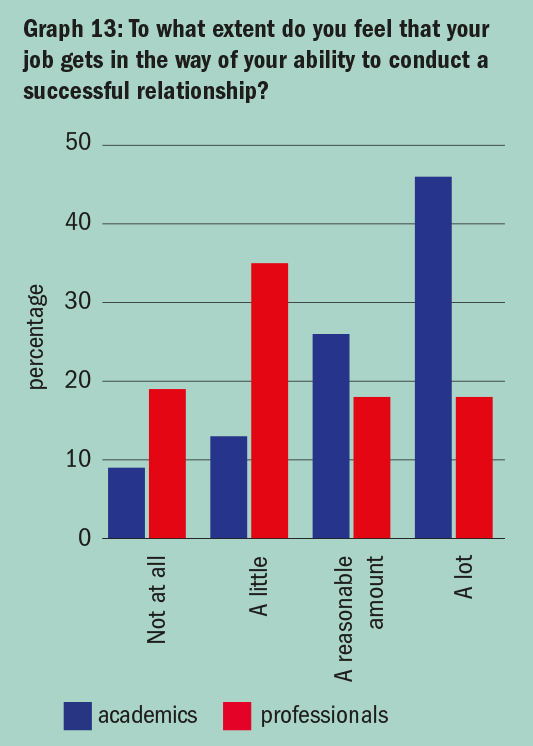
Among respondents who do not currently have a partner, 46 per cent of academics say that their job gets in the way of their ability to conduct a successful relationship “a lot”, while a further 26 per cent say that it does so “a reasonable amount”. These figures fall to 18 per cent in both cases among professional staff (see graph 13, above).
Some 45 per cent of non-attached academics think that a relationship with another academic would be easier to conduct than one with a non-academic, compared with 24 per cent who think that it would be harder.

Changing career
An overwhelming majority of university staff have considered working in a different sector: 85 per cent of both academic and professional staff say that they think about this at least occasionally.
But scholars are twice as likely to say that they frequently consider switching career, with 16 per cent giving this answer, compared with just 8 per cent of professionals.
Academics are also most likely to expect that their work-life balance would improve if they worked in another sector (31 per cent, compared with 21 per cent of non-academics), while professionals are most likely to aspire to a higher salary (29 per cent, compared with 27 per cent for academics; see graph 14, below).
Is the grass greener on the other side?
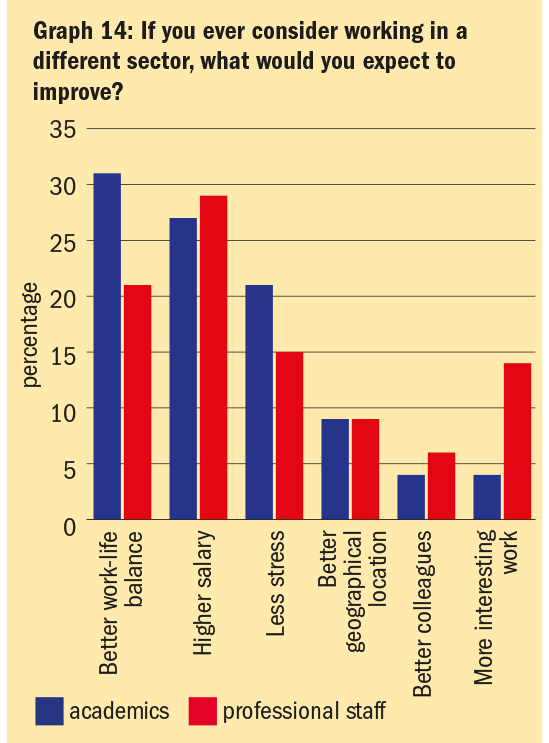
A significant proportion of scholars (21 per cent) also think that a career change could lead to less stress (compared with 15 per cent of other staff), while 14 per cent of professionals think that they could find more interesting work (compared with just 4 per cent of academics).
But several respondents are concerned that they do not have the transferable skills to change career.
“I have found that my training and experience in academia has left me ill-prepared to switch sectors, and I’m finding it nearly impossible to get an interview outside of academia,” says a postdoctoral researcher at a Welsh research university.
“It’s hard to move sectors once you have such a niche skill set. I have considered teaching several times but the pay makes it incomparable,” adds a postdoctoral researcher at the University of Bristol.
A lecturer at a university in Europe describes the notion of switching careers as a “catch 22” for academics. “You are overqualified but your qualifications do not match the ones you need. Nor do you have the practical experience for other jobs,” she says.
A lecturer at an Australian university adds: “As the higher education sector becomes increasingly managerialised and run like a business, the reasons I got into it are slipping away. But it is difficult to imagine what other job would allow for a mix of teaching and research.”
Keeping it in the family
However, not everyone is so gloomy.
“I’ve tried a few different jobs over the years so I know the grass isn’t greener! We get a pretty good package all in all, as long as you can manage your workload and find nice colleagues to work with,” says a postdoctoral researcher at a Welsh research institution.
Perhaps the ultimate test of job satisfaction is whether someone would recommend their job to their children. Some 65 per cent of academics and 75 per cent of professional staff would do so – albeit, in the majority of cases, “with reservations”. Female professionals are the most likely group to recommend their jobs “wholeheartedly”, while female academics are the least likely (see graph 15, above).
A member of professional staff at a university in the south west of England seems to sum up the general sentiment well: “I think about leaving HE but would have a hard time doing so because I love being surrounded by brilliant people and cutting-edge research. It is a vibrant and stimulating environment even if it is a little crazy.”
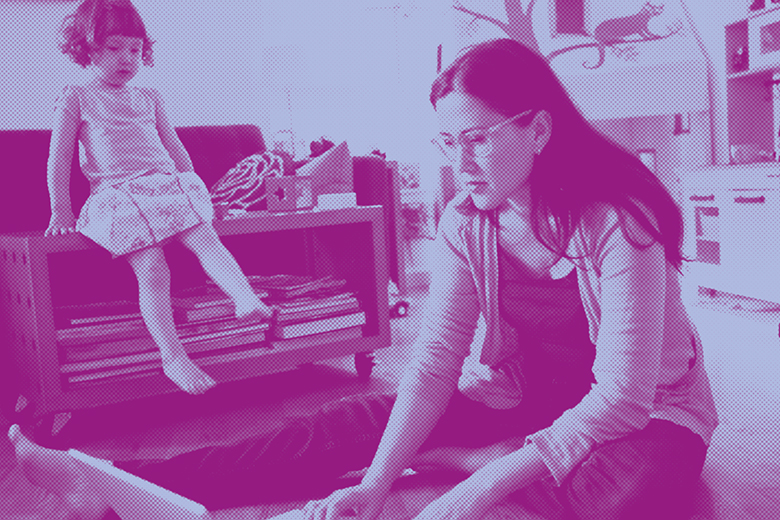
What is the one thing that your institution could do to improve your work-life balance?
“Time in lieu and smart sharing of programme cover to ensure we all get at least one decent holiday break per year”
Senior lecturer at a post-92 university in the East Midlands
“Stop constant reinvention of the wheel: workloads are just about, at a stretch, manageable if we are left alone to get on with our jobs, but keeping up to speed with whatever is this week’s managerial hobbyhorse inevitably pushes things over the edge”
Senior lecturer at a modern university in the north west of England
“We have a workload model, but it is totally unrealistic. Time needed for admin, marking and module convening in particular is really not calculated realistically, so there is always more work than you ‘should’ be doing according to the model”
Lecturer at a Russell Group university in the north west of England
“Universities should provide post-maternity sabbaticals, to give us a fighting chance to remain research-relevant”
Lecturer at a medium-sized university in London
“Ban emails outside normal working hours”
Senior lecturer at a post-92 university in the south of England
“Employ more staff to decrease stress and pressure on existing staff”
Laboratory technician at a large London university
“Replace staff who leave! I’m supposed to be doing 23 hours per week but am helping to cover a full-time vacancy so, at the moment, I work nearer 60”
Member of the library staff at a university in the north of England
“Presidents could provide leadership that would ensure managing schools was less combative”
A female academic in the Republic of Ireland
“Give more time to socialise at work, encourage outside activities, be more flexible towards women on fractional contracts and treat them as full-timers would be treated”
Senior lecturer at a post-92 university in the north of England
“Offer contracts to early career researchers that provide enough stability for them to set up a family”
An engineering postdoc in Switzerland
“Professional staff are the largest employee group, yet there is no adviser that advocates on the staff’s behalf. It’s akin to buying an extremely expensive piece of equipment, then not bothering to keep up with any maintenance”
Administrator at a university in Canada
UK/US/Australia comparisons
Concerns about work-life balance appear to be fairly consistent across the globe. Nevertheless, filtering the survey results according to respondents’ countries of residence throws up some interesting nuances.
Focusing on responses from academics in the UK, the US and Australia in particular (which, together, account for 85 per cent of responses by academics) reveals that UK-based academics appear to work the hardest, with 71 per cent of respondents working nine hours a day or more, and 15 per cent working more than 10 (the highest cited figure being 18). The figures for the US are 63 and 12 per cent respectively; for Australia, 68 and 15 per cent.
The UK is the country where workloads have increased most widely. Of UK respondents, 46 per cent say that theirs has increased over the past three years, compared with 32 per cent in Australia and 30 per cent in the US.
However, UK academics are slightly less likely to work more than five hours at the weekend (38 per cent, compared with 46 per cent of US scholars and 43 per cent of Australia-based academics). UK scholars are also less likely to work while on holiday (82 per cent, compared with 94 and 88 per cent of US and Australia-based academics respectively).
US scholars are the most likely to have had two or more holidays in the last year (59 per cent, including 12 per cent who have had more than four), while Australia-based academics are the least likely (48 per cent).
Regarding children, similar proportions of respondents in each country feel that children hold back their careers. UK-based academics are less likely to do at least half of the childcare (53 per cent, compared with 63 per cent in the US and 64 per cent in Australia); however, this may partly be explained by the fact that the UK also has a slightly lower proportion of females among its respondents (66 per cent, compared with 72 per cent of US respondents and 69 per cent of Australia-based academics).
US scholars are slightly less likely than those in other nations not to want any children, but those that do not are the most likely to say that the incompatibility of parenthood with an academic career is at least partly to blame (68 per cent, compared with 54 per cent of UK and 50 per cent of Australia-based scholars).
Universities in Australia appear to be much better at providing help with childcare; 51 per cent of respondents in Australia say that their institution definitely has a nursery on site, compared with 40 per cent in the UK and just 23 per cent in the US.
UK respondents are more likely to think that their friends have a much better work-life balance than they do, and to frequently consider working in a different sector. US respondents are the most likely never to consider a career change. Where career changes are considered, US academics would be most keen on finding a better salary, while UK and Australian scholars would be more likely to look for a better work-life balance.
Of those respondents who do not have a partner, US academics are the most likely to say that their job is an obstacle to a relationship. US scholars are also the most likely to have another academic as a partner (37 per cent, compared with 31 per cent in Australia and 30 per cent in the UK). And they are by far the most likely to earn a lot less than their partners and friends do.
Paul Jump
World views
Who and where: the respondents
The main survey, carried out between October and November 2017, has 2,379 self-selecting respondents, of whom 2,011 (85 per cent) are academics and 368 are professional or support staff.
Interestingly, women greatly outnumber men among respondents. Among academics, 67 per cent are female, and among professional and support staff, 76 per cent are female. This compares with the 45 per cent of UK academic staff and 63 per cent of UK “non-academic” staff who were female in the years 2012-13 to 2014-15, according to the Higher Education Statistics Agency, and perhaps indicates a greater concern about work-life issues among female staff.
The majority of both academic and professional respondents are relatively junior, with 14 and 16 per cent respectively under 30 years old, 43 and 40 per cent between 30 and 39 years old, 26 and 30 per cent between 40 and 49, and 15 and 11 per cent between 50 and 59 years old.
Ninety per cent of academics and 87 per cent of professional and support staff are employed full-time but, while 87 per cent of professional and support staff are on full-time contracts, only 67 per cent of academic respondents are.
Among academic respondents, 62 per cent work in the UK, 10 per cent in another European country, 17 per cent in the US, 6 per cent in Australia, 3 per cent in Canada and 4 per cent elsewhere. Among professional and support staff, 71 per cent work in the UK, 5 per cent elsewhere in Europe, 17 per cent in the US, 3 per cent in Australia, 2 per cent in Canada and 3 per cent elsewhere.
Among academics, the largest proportion – 25 per cent – are in the biological and physical sciences, with 21 per cent in the social sciences, 20 per cent in arts and humanities, and 10 per cent in medicine, dentistry and veterinary sciences. The most common ranks are lecturer and senior lecturer, or equivalents (both 26 per cent), professors (19 per cent), postdocs (14 per cent), doctoral students (10 per cent) and heads of department (5 per cent).
Among professional and support staff, 37 per cent are managers and 19 per cent senior managers, 18 per cent are administrators, 12 per cent technicians, 4 per cent executives and 11 per cent something else.
The supplementary survey has 402 respondents, of whom 66 per cent are female and 76 per cent are academics. Among academics, the largest proportion, 36 per cent, are between 30 and 39, and 89 per cent work full-time. In terms of geography, 81 per cent are from the UK, 6 per cent from another European country, 7 per cent from the US, 3 per cent from Australia and 3 per cent from elsewhere.
Paul Jump
POSTSCRIPT:
Print headline: Get a life? No time for that!
Register to continue
Why register?
- Registration is free and only takes a moment
- Once registered, you can read 3 articles a month
- Sign up for our newsletter
Subscribe
Or subscribe for unlimited access to:
- Unlimited access to news, views, insights & reviews
- Digital editions
- Digital access to THE’s university and college rankings analysis
Already registered or a current subscriber?

